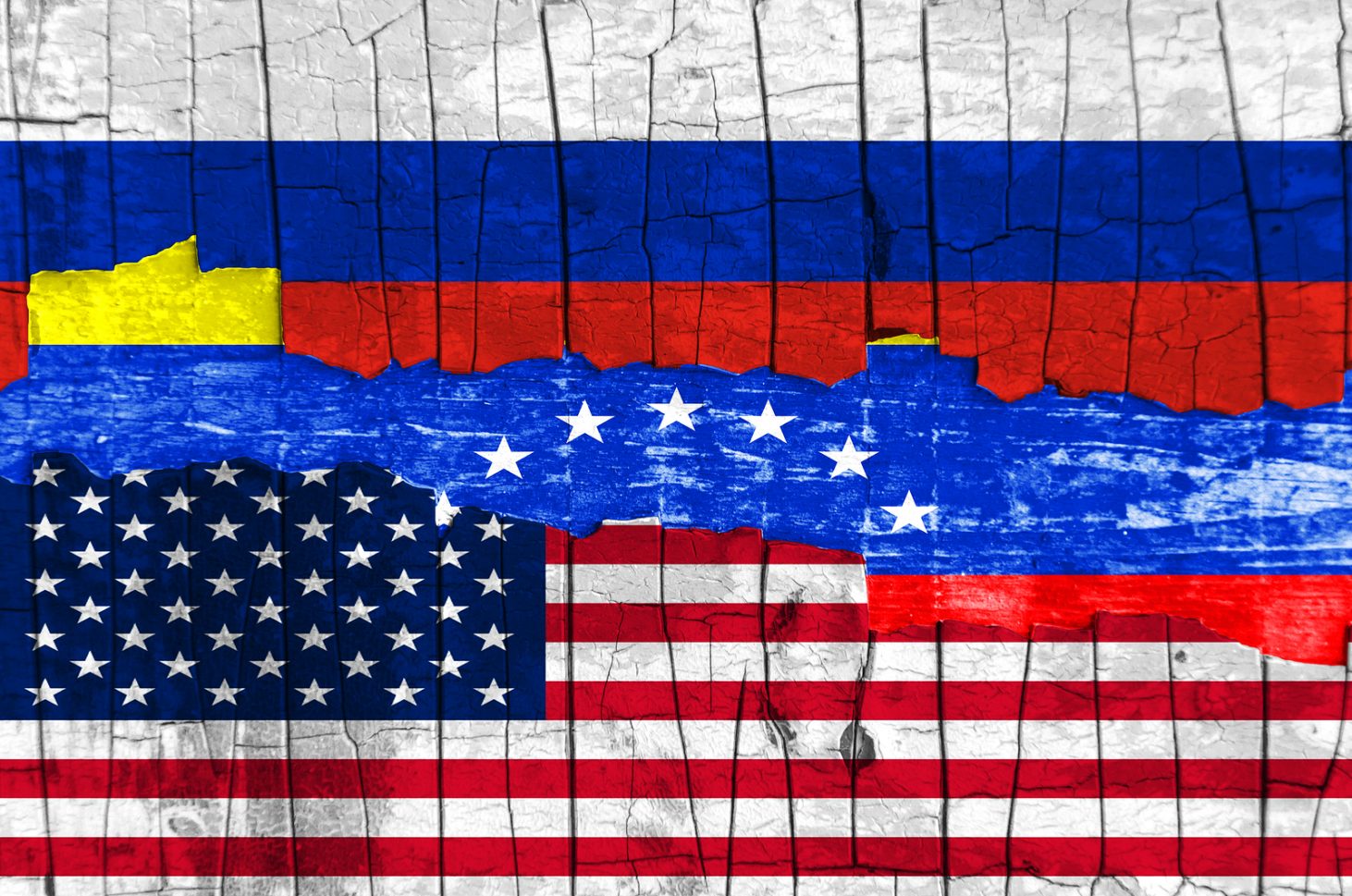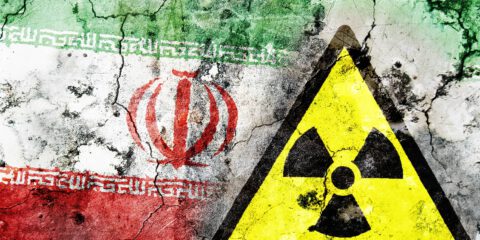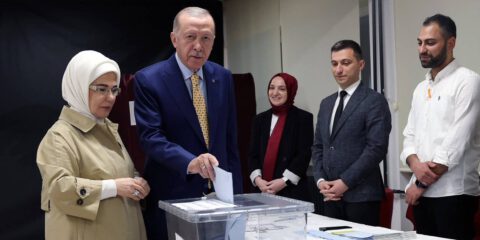Venezuela has become flash point between Russia and the US. The way in which America responds to Russian conduct in its backyard will influence Russia’s international conduct in the future.
Russia and the US have been exchanging verbal blows and threats regarding the situation in Venezuela, a situation that raises terrifying memories from the time of the Cuban missile crisis when war between the Western and Eastern blocs seemed possible. When opposition leader Juan Guaido claimed the Venezuelan presidency in January, the US rushed to recognize him along with more than fifty countries, including Israel. But Russia, China, Iran, Turkey and others continue to recognize the Maduro government that has been in power since Hugo Chavez’s death in 2013.
Since then, the situation between the US and Russia has been deteriorating. Accrding to media reports, Russia is now establishing a training center for helicopter pilots in Venezuela, and two military airplanes carrying 100 troops and military equipment along with the commander of Russia’s ground forces have landed in the country. In addition, S-300 weapon systems have been deployed in Venezuela and already are operational, reportedly.
As a result, American leaders have escalated their rhetoric and threatened Russia with additional sanctions. President Trump has warned Russia that “all options are on the table” unless it withdraws all its military personnel and equipment. Vice President Pence and National Security Advisor Bolton also have issued harsh warnings to Russia.
In response, the Russian Foreign Ministry spokesperson stated that Russian military personnel would remain in the country as long as Moscow and Caracas agree it is necessary. She claimed that Russia is acting on an agreement the two countries signed for technical-military cooperation in 2001, and according to Venezuelan law. She also stressed that Russia supported the “legal power” in Venezuela, meaning the Maduro government that is de facto in power, and that the decision to cooperate with Russia’s military could only be taken by the citizens of Venezuela (and not, as can be understood, by external parties).
Russia repeatedly claims that it acts according to international law, while stressing the principle of “sovereignty” and the sovereign’s right to invite foreign military representatives to his country. However, it is not always clear which “sovereign” is the relevant one or who is entitled to rule a torn country. A case in point is Libya, where Russia backs General Halifa Aftar.
Adhering to the sovereignty principle is typical of other states that are concerned about external, Western “meddling.” In Venezuela, the support of Russia, Iran, China and Turkey for the Maduru administration derives from different reasons, yet they all fear foreign activities that may destabilize their sovereignty and that are directed towards, as they see it, bringing their governments down.
From Russia’s point of view, the situation in Venezuela is connected to developments in other parts of the world. Two cases that stand out are American reaction to Russian policy in Assad’s Syria and Russia’s occupation of the Crimean Peninsula.
In Syria, Russia sees the US obstructing the rebuilding of Syria under Assad’s sovereignty and creating obstacles in Assad’s attempts to normalize relations with the international and regional communities. In the case of Crimea, US Secretary of State Pompeo has announced new sanctions against Russia due to the Russian operation in the Kerch straits and the detention of Ukrainian sailors in a November 2018 incident. The sanctions were announced on the very same day that the Russian military aircraft arrived in Venezuela.
In Russian eyes, if the US and NATO are active in Russia’s “backyard,” then Russia can and should demonstrate it is present and active in the US “backyard”,
Russia views its military presence in Venezuela as leverage. Because it is economically and militarily inferior to the US, Russia must link global arenas to maximize its clout in aspiring for a multipolar world. President Putin’s foreign policy adviser expressed clear linkage between Russia’s aspirations in Syria and the events in Venezuela by saying that the US shouldn’t be concerned about Russian deployment in Venezuela, but rather focus on its withdrawal from Syria. And sure enough, when the Venezuelan Minister of Foreign Affairs visited Syria a while ago, with Russian approval, he stated that the two countries are jointly fighting “American domination.”
Seeking global leverage, Russia is acting to become a vital party to the resolution of international conflicts. Russia is also sending a message to the world that it will stand by its allies in times of crisis, a message that serves to support Russian aspiration for any future global expansion. For example, Russia has positioned itself as the most important actor regarding Syrian refugee rehabilitation – an issue that holds electoral implications for many governments in Europe.
Yet, considering Venezuela’s proximity to the US and the anger that Russian actions have engendered in the US, it appears that President Putin may have chosen a dangerous path in Venezuela; a path that may, in extreme circumstances, lead to military confrontation with the US.
The Kremlin, however, sees things differently. Moscow is not acting out of a historical sense of offense or a craving for revenge, but out of a sober strategic evaluation of American policy in recent years.
The Russians well remember US President Obama’s failure to act after Assad crossed Obama’s infamous “red lines” regarding the use of chemical weapon in Syria. Similarly, Russia evaluates that it is unlikely that the US would send troops to Venezuela. This is especially true as President Trump pushes for the withdrawal of American forces from Syria and Afghanistan, and for reducing American involvement in international conflicts in general.
Russia also assesses that the US will be reluctant to repeat the “Syria scenario” near American borders. If Russian calculations are correct, Moscow will succeed in protecting Maduro’s administration and be able to expand its global influence and presence elsewhere too.
And thus, Russia (and the entire international system) is watching to see how the US will or won’t respond to Russian conduct in Venezuela. How Washington responds will to a great extent determine the latitude that Moscow takes in global affairs in the coming years.
JISS Policy Papers are published through the generosity of the Greg Rosshandler Family.
photo: Bigstock









 - בניית אתרים
- בניית אתרים